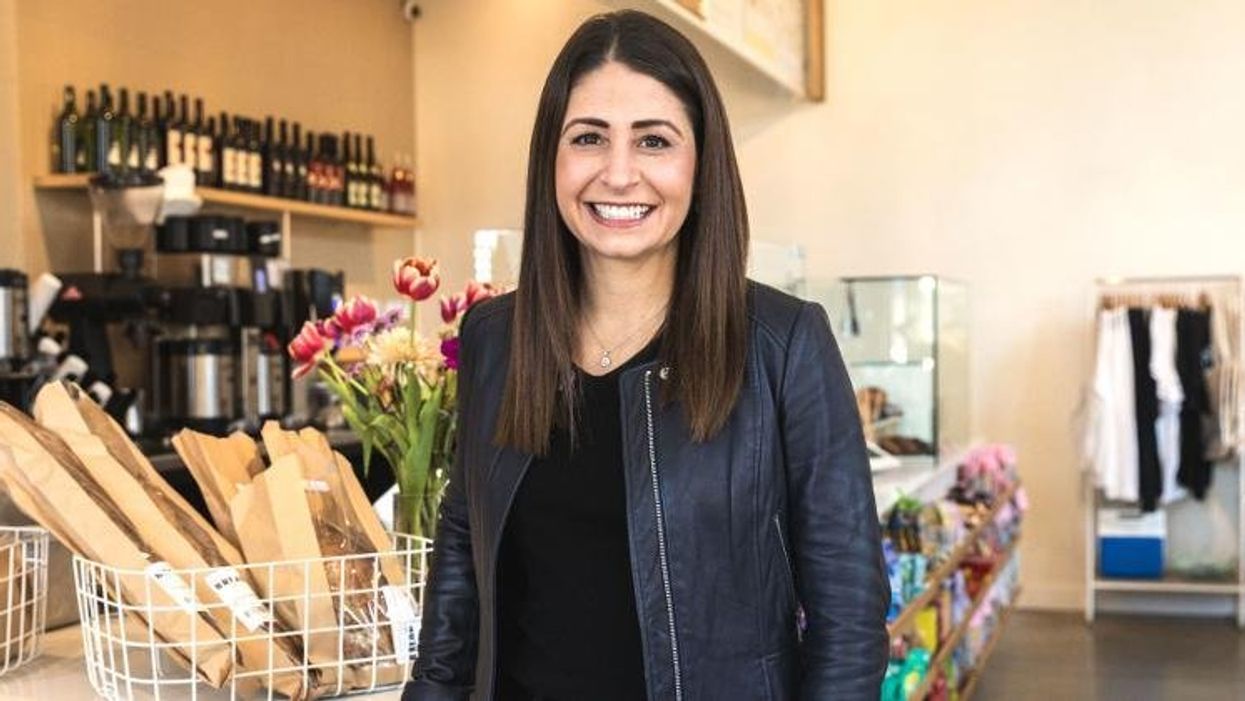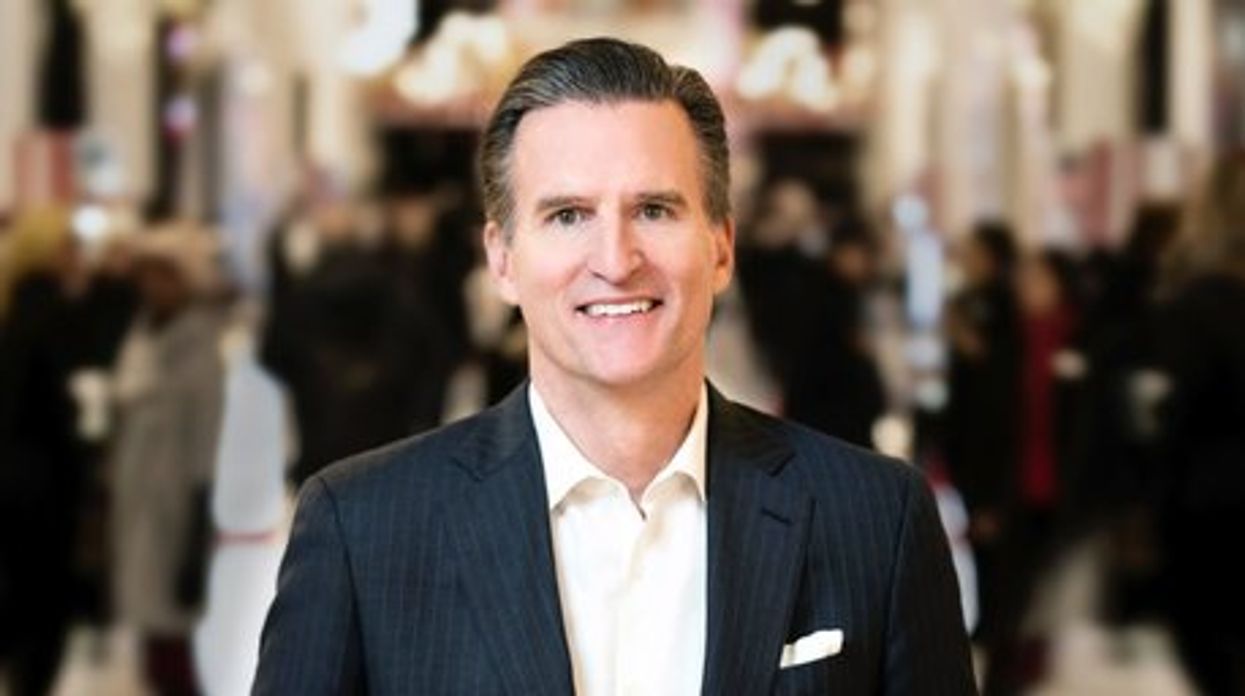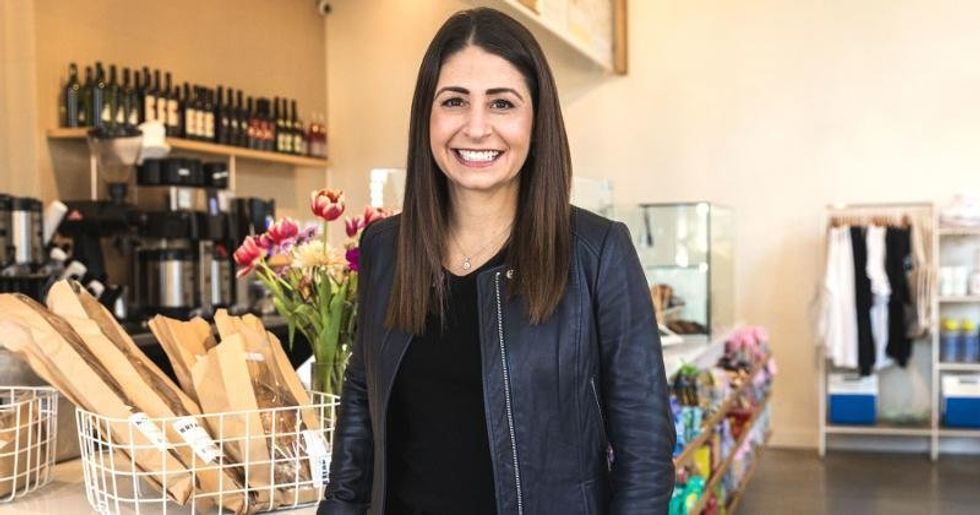Careers
04 April 2023
Foxtrot, Macy's announce CEO successions; Van Ness joins fintech
On the Move has the latest hiring and promotion news from GoodwillFinds, Prose and more.

Liz Williams is the new CEO of Foxtrot. (Courtesy photo)
On the Move has the latest hiring and promotion news from GoodwillFinds, Prose and more.

Liz Williams is the new CEO of Foxtrot. (Courtesy photo)
Welcome to On the Move. Every week, The Current is rounding up the comings and goings of leaders at brands and retailers across the ecommerce, retail and CPG landscape.
This week, Macy’s and Foxtrot see CEO transitions, while GoodwillFinds is bolstering its C-suite. Plus, Jonathan Van Ness is now the chief self care officer at a health and wellness-focused fintech.
Check out the latest moves:

Jeff Gennette. (Courtesy photo)
Macy’s, Inc. announced a CEO succession plan that will see current CEO Jeff Gennette retire in February 2024. With this, Bloomingdale’s CEO Tony Spring will rise to become the retailer’s next CEO.
With the move, CFO Adrian Mitchell will also take on COO responsibilities.
Gennette is a 40-year veteran of Macy’s. He entered the CEO role in 2017, and spearheaded the Polaris turnaround strategy, which arrived just prior to the pandemic in 2020. Next year, he will pass the reins to Spring, who is credited with delivering strong results for Bloomingdale’s.
“Tony consistently innovates for the customer, is an exceptional brand builder and an excellent talent developer who has strengthened our culture through his leadership,” Gennette said.

Liz Williams. (Courtesy photo)
Foxtrot, the delivery-forward corner store and cafe, promoted Liz Williams to the role of CEO.
Williams joined the grocer in June 2022 as president and CFO. Previously, Williams served as CFO of Taco Bell, and CEO of Drybar.
With the promotion, cofounder Mike LaVitola is transitioning to chairman of the Foxtrot board.
"Since joining our team last summer, Liz’s inspirational leadership, deep admiration for the Foxtrot brand and depth of operating expertise has taken us to new heights,” said LaVitola, in a statement. “We are thrilled for the opportunity to grow with Liz as our CEO as we introduce Foxtrot to more neighborhoods across the country.”
Foxtrot currently operates stores in Chicago, Washington, D.C., Dallas, Austin. It is eying expansion as Williams takes the helm.

Jonathan Van Ness. (Courtesy photo)
Jonathan Van Ness, the hairstylist and Queer Eye star, is joining the health and wellness credit card provider Ness as chief self care officer.
In this role, Van Ness will help lead business strategy, including product, content and member experience. He will also play a key role in the rewards and benefits program. Ness launched with a beta of the Ness Card last month.
“Ness speaks to the core of my own personal mission and I am thrilled to join the team,” said Van Ness, in a statement. “Together, we’re building a platform that empowers people to take control of the most important thing they have, their health and wellness. My mantra has always been: self-care is non-negotiable.”
GoodwillFinds, the resale platform extending thrift store Goodwill to ecommerce, added a pair of executives to its C-suite as it eyes growth. They are:

Erich Melsheimer. (Courtesy photo)
Massage Envy appointed Erich Melsheimer as chief development officer.
Melsheimer brings experience as VP of global real estate at Planet Fitness, and previously spent 12 years at Gap, Inc., overseeing the Southeast U.S."
Erich is a visionary leader who will help strengthen and expand Massage Envy's national footprint," said Massage Envy CEO Beth Stiller, in a statement. "His established record of driving sustainable growth while strengthening relationships with franchisees and the real estate development community will help propel the brand forward."

Marie Mignon. (Courtesy photo)
DTC haircare brand Prose promoted Marie Mignon to the role of chief scientific officer, according to HAPPI.
Mignon was previously VP of R&D. Now, she will oversee a team of five female chemists and the data science team.
Previously, Mignon spent eight years at L'Oréal.
Campbell Soup Company CEO Mark Clouse offered thoughts on messaging amid inflationary shifts in consumer behavior.
After months of elevated inflation and interest rate hikes that have the potential to cool demand, consumers are showing more signs of shifting behavior.
It’s showing up in retail sales data, but there’s also evidence in the observations of the brands responsible for grocery store staples.
The latest example came this week from Campbell Soup Company. CEO Mark Clouse told analysts that the consumer continues to be “resilient” despite continued price increases on food, but found that “consumers are beginning to feel that pressure” as time goes on.
This shows up in the categories they are buying. Overall, Clouse said Campbell sees a shift toward shelf-stable items, and away from more expensive prepared foods.
There is also change in when they make purchases. People are buying more at the beginning of the month. That’s because they are stretching paychecks as long as possible.
These shifts change how the company is communicating with consumers.
Clouse said the changes in behavior are an opportunity to “focus on value within our messaging without necessarily having to chase pricing all the way down.”
“No question that it's important that we protect affordability and that we make that relevant in the categories that we're in," Clouse said. "But I also think there's a lot of ways to frame value in different ways, right?”
A meal cooked with condensed soup may be cheaper than picking up a frozen item or ordering out. Consumers just need a reminder. Even within Campbell’s own portfolio, the company can elevate brands that have more value now, even if they may not always get the limelight.
The open question is whether the shift in behavior will begin to show up in the results of the companies that have raised prices. Campbell’s overall net sales grew 5% for the quarter ended April 30, while gross profit margins held steady around 30%. But the category-level results were more uneven. U.S. soup sales declined 11%, though the company said that was owed to comparisons with the quarter when supply chains reopened a year ago and expressed confidence that the category is seeing a longer-term resurgence as more people cook at home following the pandemic. Snacks, which includes Goldfish and Pepperidge Farm, were up 12% And while net sales increased overall, the amount of products people are buying is declining. Volumes were down 7%.
These are trends happening across the grocery store. Campbell is continuing to compete. It is leading with iconic brands, and a host of different ways to consume them. It is following that up with innovation that makes the products stand out. Then, it is driving home messaging that shows consumers how to fit the products into their lives, and even their tightening spending plans.
Campbell Soup is more than 150 years old, and has seen plenty of difficult economic environments. It is also a different business today, and will continue to evolve. At the end of the day, continued execution is what’s required.
“If it's good food, people are going to buy it, especially if it's a great value,” Clouse said.